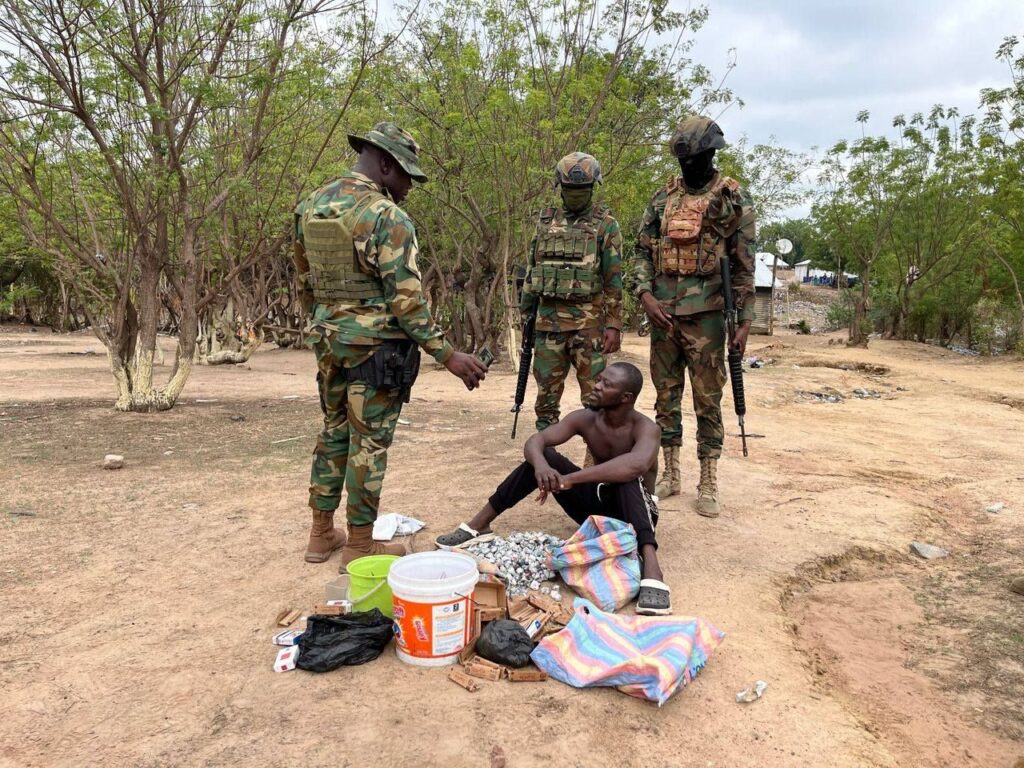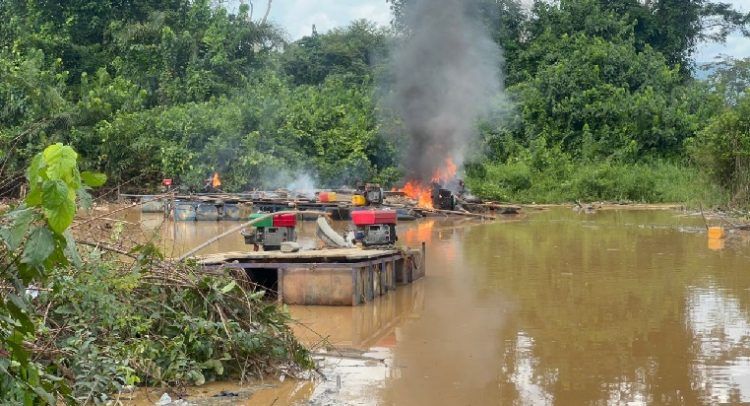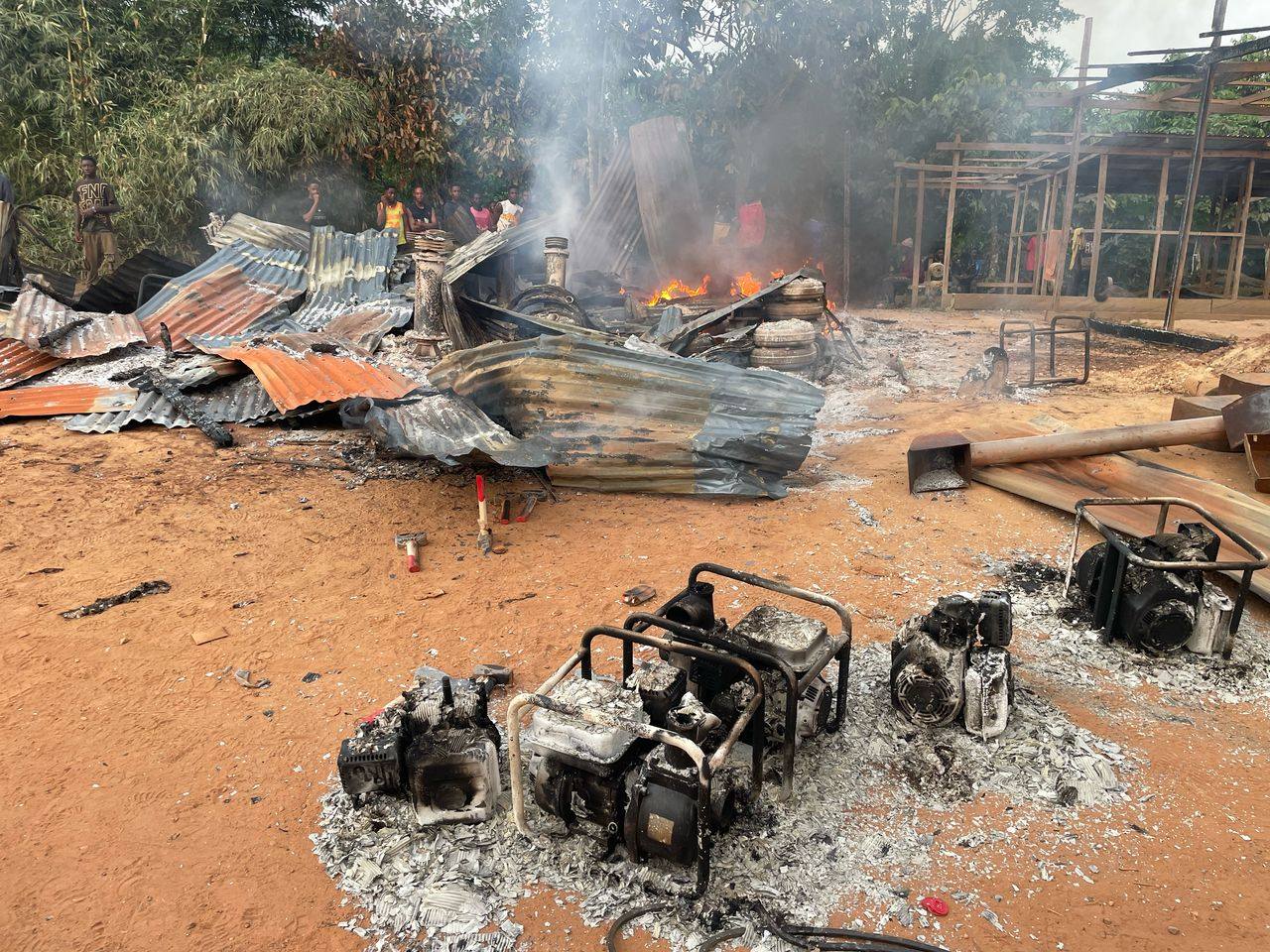GAF Steps Up the Fight Against Galamsey
In a bold move to curb the escalating environmental crisis caused by illegal mining, the Ghana Armed Forces (GAF) have launched a series of targeted anti-galamsey operations across the Northern, Central, and Southern Commands. These new operations are part of a broader strategy to protect Ghana’s water bodies, forest reserves, and farmlands from further degradation caused by unauthorized mining activities.
The operations, described by GAF as “surgical,” are highly coordinated and intelligence-led, aimed specifically at known illegal mining hotspots where the environmental impact is most severe.
Targeting Ghana’s Most Affected Ecosystems
The renewed offensive focuses on areas where illegal miners—commonly referred to as galamsey operators—have set up in ecologically sensitive zones. These include protected forest reserves and river basins, many of which have seen rampant destruction due to unregulated mining.
According to GAF, the choice of operational sites is not random. Teams are acting on verified intelligence reports, drone surveillance, and reconnaissance missions, all intended to disrupt and dismantle illegal mining networks with precision while minimizing collateral damage to local communities.
The Environmental Toll of Illegal Mining

Galamsey has long been a thorn in the side of Ghana’s efforts to achieve sustainable environmental development. The practice contributes to widespread deforestation, mercury pollution, river contamination, and the destruction of farmland. Rivers such as the Pra, Offin, and Ankobra have become dangerously polluted, threatening both biodiversity and public health in mining-prone regions.
The new military operations signal a renewed national urgency in addressing the crisis, particularly in the wake of growing public concern over the deteriorating state of Ghana’s natural resources.
Military Precision Meets Environmental Protection

Unlike previous anti-galamsey missions, the current operations are being executed with what officials describe as a “surgical” approach. This means targeted raids on illegal mining enclaves rather than broad sweeps that often disrupt lawful activities or displace innocent residents.
Commanders from the three military zones—Northern, Central, and Southern Commands—have been deployed to coordinate ground operations, confiscate machinery, and arrest perpetrators where necessary. Reports indicate that several excavators and mining equipment have already been seized or destroyed as part of the ongoing enforcement action.
Collaborative Approach with Civil Authorities
In addition to military involvement, GAF is working closely with the Ministry of Lands and Natural Resources, Environmental Protection Agency (EPA), Forestry Commission, and other relevant bodies to ensure that the crackdown is comprehensive and legally supported.
The Ghana Armed Forces have reiterated that these operations are not just about arresting illegal miners, but also about deterring future violations, educating communities, and safeguarding the country’s long-term ecological well-being.
Public Reaction and the Road Ahead
Public reaction has been mixed. While many environmental advocates and community leaders have welcomed the operations as long overdue, others caution that militarized solutions must be balanced with sustainable alternatives and community development efforts.
Critics also warn that without a sustainable livelihood program for displaced miners, the cycle of galamsey may continue. They urge the government to complement military action with policy reforms, job creation, and public education campaigns that empower local communities to protect their natural resources.
Conclusion: A Bold Step Toward a Cleaner Future
The launch of these surgical anti-galamsey operations by the Ghana Armed Forces marks a decisive step in the country’s fight to reclaim its forests, rivers, and farmlands from illegal mining. If executed with consistency, transparency, and collaboration, these efforts could serve as a model for military-environmental cooperation in the region.
As operations continue, all eyes will be on the effectiveness of this campaign—and whether it brings lasting change to the gold mining sector and environmental governance in Ghana.

